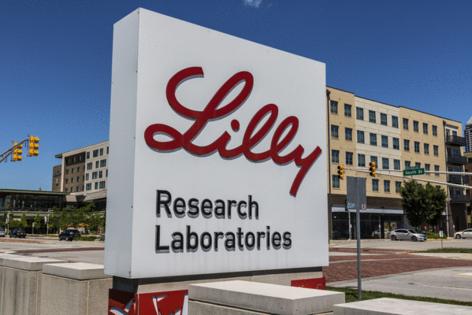Lilly's experimental obesity drug shows promise in early study
Published in Business News
An experimental weight-loss drug from Eli Lilly & Co. helped patients lose weight with few side effects, according to the summary of a small study that suggests the company has another foothold in the obesity market.
The drug, called eloralintide, helped some patients lose more than 11% of their body weight in three months, according to an abstract posted Friday ahead of the American Diabetes Association conference in Chicago. The drug is moving to the next stage of development and researchers will present details on dosing and safety at the conference next week.
“The data look particularly strong, and should push the program back into investor conversations,” Cantor Fitzgerald analyst Prakhar Agrawal wrote in a note to investors.
Lilly has shared few details about eloralintide before now, as it’s still in the early stages of testing. It’s part of a class of drugs that mimic the hormone amylin, which slows digestion and makes people feel full longer. They’re thought to be a gentler option for losing weight than currently available injections like Zepbound and Wegovy, which often have side effects like nausea and vomiting.
The study enrolled 100 patients who were given different doses of the experimental drug or a placebo for 12 weeks. Weight loss ranged from 2.6% to 11.3%, according to the abstract. Gastrointestinal side effects were relatively minimal, with about 10% of patients experiencing diarrhea and 8% vomiting. Few details were provided, however, including information on risks and benefits based on dose.
The promise of drugs that are easier to take than blockbusters like Lilly’s Zepbound and its rival Wegovy, from Novo Nordisk A/S, has drawn increasing interest from companies hoping for a piece of pharma’s hottest market.
In March, Roche Holding AG entered into a $5.3 billion deal to co-develop and commercialize Zealand Pharma A/S’ amylin drug, called petrelintide. It is seen as the one to beat in the amylin class, with early trials showing patients lost as much as 8.6% of their body weight in four months, with less nausea than Lilly and Novo’s current therapies.
AbbVie Inc. agreed to pay as much as $2.2 billion in March for an amylin drug from Danish biotech Gubra A/S, marking its first foray into the obesity market. New York-based startup Metsera Inc. is developing a related compound that may be taken less frequently than weekly shots like Zepbound and Wegovy.
Lilly is already a leader in the obesity market, where Zepbound is capturing the majority of new prescriptions. The company has several promising next-generation products in the late stages of development, including a pill called orforglipron and an experimental shot that’s thought to be even more effective for weight loss.
The company is studying eloralintide alone and in combination with Zepbound — similar to the approach Novo is taking with its next-generation drug CagriSema, which combines an amylin component with semaglutide, the backbone of Wegovy and the diabetes drug Ozempic.
©2025 Bloomberg L.P. Visit bloomberg.com. Distributed by Tribune Content Agency, LLC.












Comments